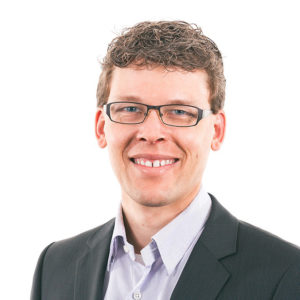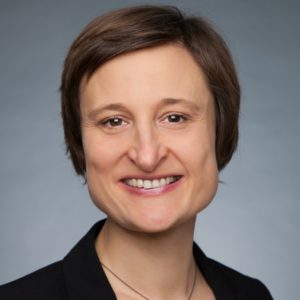New Digital Realities
September 8-11, 2019 in Hamburg
The Mensch und Computer (MuC) conference is an annual conference organised by the German Informatics Society (Gesellschaft für Informatik e.V.) and the German Usability Professionals Association (German UPA). With more than 700 participants in the past, the Mensch und Computer MuC is one of the largest German-speaking IT conferences and the largest HCI conference in Europe.
The main scope of the conference is to connect people with other IT professionals, keep in touch with the latest trends in the field of HCI, interface design and usability. Therefore, MuC comprises two main tracks. While the scientific track (“Mensch-Computer-Interaktion” - MCI) presents new research findings in the field of HCI, the practice-oriented section (“Usability Professionals” - UP) focuses on state-of-the-art reports and workshops on usability and user experience.
Accepted short and long papers will be published in the ACM Digital Library.
Call for Papers
We welcome contributions from academics and practitioners in the form of long papers, short papers, workshops, tutorials, and doctoral colloquiums. To stengten the international profile of the conference, we welcome and encourage submissions and presentations in English. Although the main conference language is traditionally German, also other parts of the program are in are English (e.g. Keynotes).
Important Dates
| Track | Contribution Type | Abstract Submission | Submission | Acceptance Notice | Camera Ready Submission |
|---|---|---|---|---|---|
| MCI | Full Papers | 29.03.2019 | 05.04.2019 | 31.05.2019 | 19.06.2019 |
| MCI | Workshops | 05.04.2019 | 17.04.2019 | 12.07.2019 | |
| MCI | Short Papers, Tutorials | 07.06.2019 | 05.07.2019 | 12.07.2019 | |
| MCI | Demos | 21.06.2019 | 05.07.2019 | 12.07.2019 | |
| MCI | Submissions to the Doctoral Colloquium | 30.06.2019 | 05.07.2019 | 12.07. |
|
| UP | Contribution Proposals (Abstract) | 05.04.2019 | from 30.04.2019 | Review Version 31.05.2019 Version for proceedings 12.07.2019 |
|
| Challenges |
Scientific Track
We invite you to submit full papers as well as short papers, demos, tutorials, workshops, and submissions to the doctoral consortium.
Full papers, should make a novel scientific contribution and will be presented as talk during the main part of the conference.
If you have a research idea or first results of your research project, you are invited to submit a short paper which you will present as poster at the conference. There you can share and discuss your concepts and ideas with the community.
Demos shall present new and innovative interaction technologies and methodologies. The conference offers a separate demo session for this purpose.
Workshops are open forums for short presentations, discussions or collaborative work related to a specific topic. The workshop organisation, meaning the invitation and selection of contributions, is fully done by each workshop organiser.
Practical Track
The conference’s practical track invites you to submit full or creative presentations, workshops and panel discussions, tutorials as well as Young Professionals presentations in German or English language.
Full presentations might present exciting work results, new interaction techniques, new usability or UX methodologies or company-specific processes. You are as well invited to present and discuss controversial topics.
Your written contribution shall comprise up to 14 pages whereas your talk will get a 30-minutes slot including the discussion.
Submitting creative presentations means to discuss creative work results as well as experience reports. Your presentation comprises 15 to 30 minutes and is followed by a written article within the conference proceedings.
Workshops and panel discussions within the practical part allows our participants to discuss and work on an interesting topic together with other experts. Each workshop or panel discussion will get a 90-minutes slot at the conference. You are invited to submit a written contribution, although this is no prerequisite for conducting the workshop.
Tutorials offer the opportunity to show theoretical as well as practical knowledge or experiences to other participants. Each tutorial gets either a 90-minutes slot, 4 hours (half day) or 8 hours (full day). If you organise a tutorial, you are rewarded by just paying the reduced conference fee.
Our Young Professionals format allows junior experts to present their graduate thesis or results from professional training. You might find your next employer there in the audience.
Submission
Long papers should be 6-10 pages long (excluding references). Short papers should be 2-4 pages (excluding references). All papers have to be submitted via ConfTool using one of the following templates:
Main Topics of Mensch und Computer
Methodology And Modeling
- Adaptive User Interfaces
- User Modeling
- Agile Methods
- User Experience and Usability Research
- Novel Evaluation Methods
- Prototyping and Interaction Modeling
- User Experience Design
Interaction Techniques
- Tangible Interaction
- Haptics, Touch, and Gestures
- Human-Robot Interaction
- Look, Point, Touch – Multi-Device Interaction
- Mobile Interaction Techniques
- Eyetracking und Gaze Interaction
- Brain-Computer Interfaces
- Wearable und Nomadic Computing
- Multimodal Interaction
- Assistive Technologies
Application Areas
- Internet of Things and Industry 4.0
- Interaction with Embedded and Ambient Systems
- Smart Homes
- Ambient Assisted Living
- Automotive User Interfaces
- CSCW and Social Computing
- Digital Humanities and UX
- Entertainment Computing
- Virtual Reality, Augmented Reality, Mixed Reality
- Virtual Characters and Avatars
- Gamification and Serious Games
- Usable Security
- Health and Well-being
- Learning Technologies
Reflection And Perspectives: Individuals And Society
- Affect, Aesthetics, and Emotion
- Designing for Gender and Diversity
- Inclusiveness
- Refugee Informatics
- Economic Perspectives of UX
City of Hamburg
MuC 2019 is held in Hamburg, is the second-largest city of Germany as well as one of the country's 16 constituent states, with a population of roughly 1.8 million people. The city lies at the core of the Hamburg Metropolitan Region which spreads across four German federal states and is home to more than 5 million people.
VISA Information
If you are a non-EU citizen, please check if you need a visa for entering Germany and the Schengen Area. A list of citizens of countries that need a visa can be found here Do I need a visa?.
General Conference Chairs
generalchairs@mensch-und-computer.de

Katrin Wolf
HAW Hamburg
generalchairs@mensch-und-computer.de

Frank Steinicke
Universität Hamburg
Program Chairs
programm@mensch-und-computer.de

Florian Alt
Universität der Bundeswehr München
programm@mensch-und-computer.de

Andreas Bulling
Universität Stuttgart
programm@mensch-und-computer.de

Tanja Döring
Universität Bremen
Associate Chairs
- Mirjam Augstein - FH Oberösterreich
- Daniel Buschek - LMU München
- Tilman Dingler - University of Melbourne
- Florian Echtler - Bauhaus-Universität Weimar
- Christian Geiger - Hochschule Düsseldorf
- Jan Gugenheimer - Universität Ulm
- Niels Henze - Universität Regensburg
- Monique Janneck - Technische Hochschule Lübeck
- Thomas Ludwig - Universität Siegen
- Valérie Maquil - Luxembourg Institute of Science and Technology
- Athanasios Mazarakis - Christian-Albrechts-Universität zu Kiel
- Tilo Mentler - Universität Lübeck
- Alexander Meschtscheriakov - Universität Salzburg
- Ken Pfeuffer - Universität der Bundeswehr München
- Kathrin Probst - FH Oberösterreich
- Harald Reiterer - Universität Konstanz
- Andreas Riener - Technische Hochschule Ingolstadt
- Michael Rohs - Universität Hannover
- Enrico Rukzio - Universität Ulm
- Stefan Schneegass - Universität Duisburg-Essen
- Gunnar Stevens - Universität Siegen
- Emanuel von Zezschwitz - Universität Bonn
- Gerhard Weber - TU Dresden
- Raphael Wimmer - Universität Regensburg
